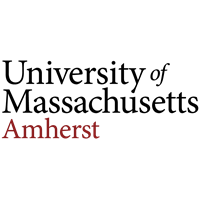Below is a summary of the abstract you submitted. Presenting author(s) is shown in bold.
If any changes need to be made, you can modify the abstract or change the authors.
You can also download a .docx version of this abstract.
If there are any problems, please email Dan at dar78@pitt.edu and he'll take care of them!
This abstract was last modified on March 15, 2024 at 10:26 a.m..

The SEA-PHAGES program aims to increase interest in biological sciences among undergraduate students through immersion in authentic and accessible research opportunities. As undergraduate teaching assistants (uTAs), we are not only able to assist students in their first authentic biological research experience, but also foster confidence and passion within our students. The University of Massachusetts Amherst implemented the SEA-PHAGES into the introductory curriculum in the Fall of 2019. The program began with just one lab section which has since grown to 38 lab sections exceeding 900 students in the Spring of 2024, making it the primary introductory biology laboratory course at UMass Amherst. Since then, the program has contributed 467 unique bacteriophages to the database, with 228 to be added this semester. Given that the program has grown to such a large scale, the value of uTAs in the SEA-PHAGES program has become increasingly important. As uTAs, our role is to guide students throughout the phage discovery process and help with interpreting results that do not present a definitive answer, allowing students to experience the true nature of the scientific process. While our time as students in the SEA-PHAGES program has ended, we are still able to contribute through our role as undergraduate teaching assistants by cultivating unique laboratory skills and experiences for future life scientists.
